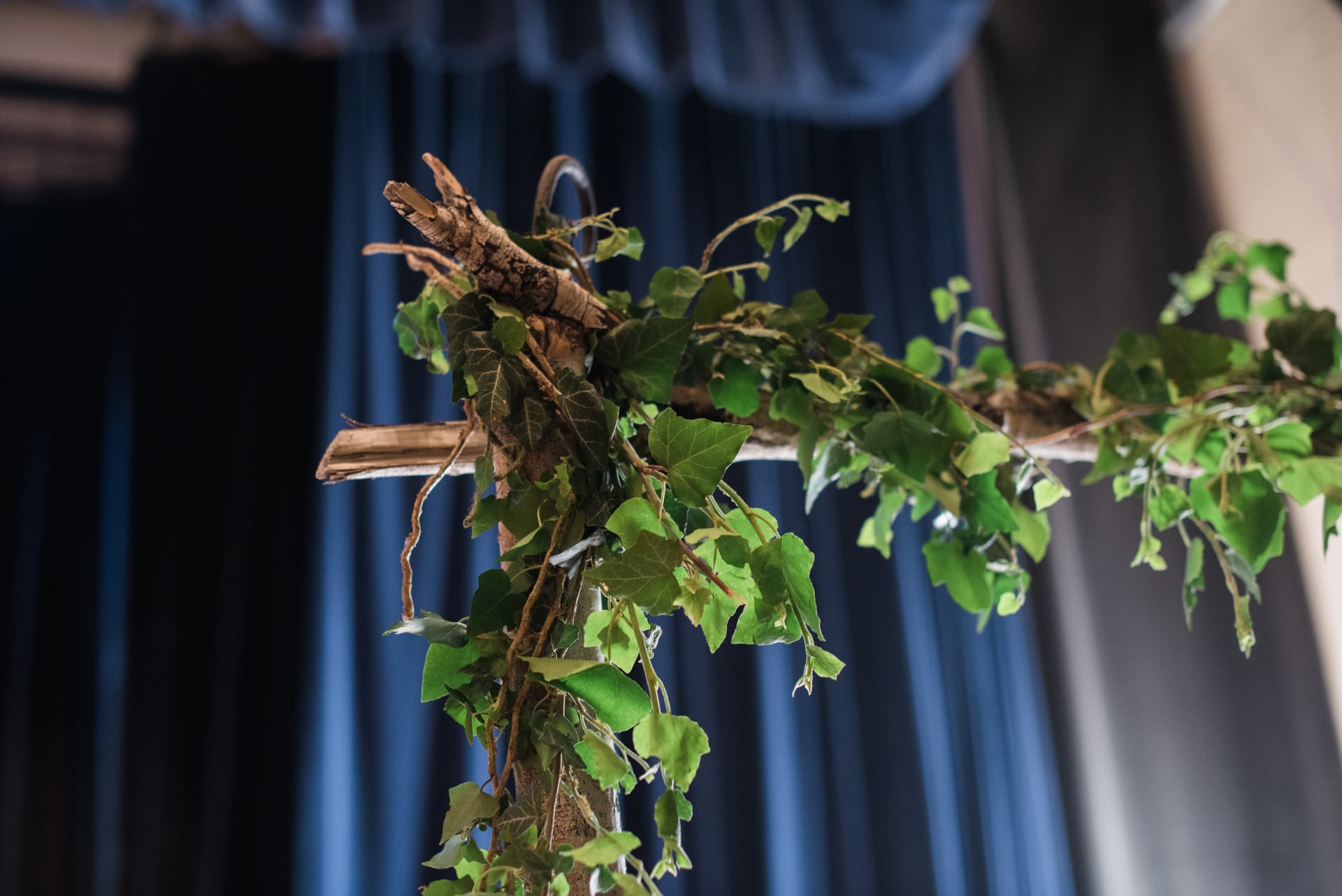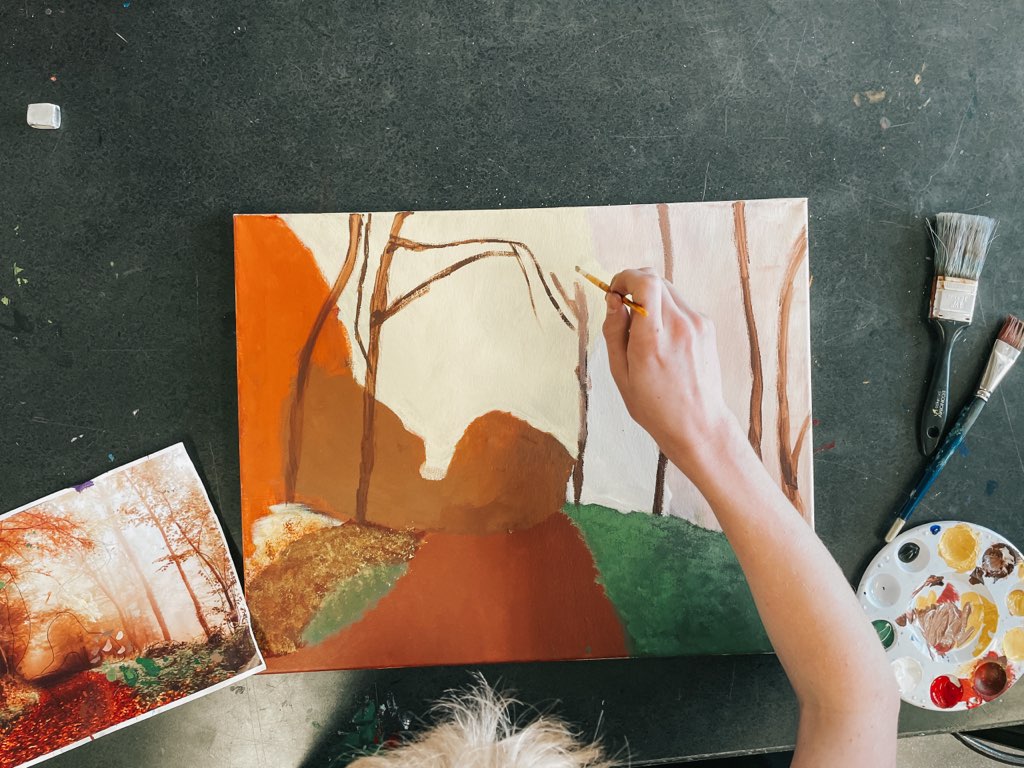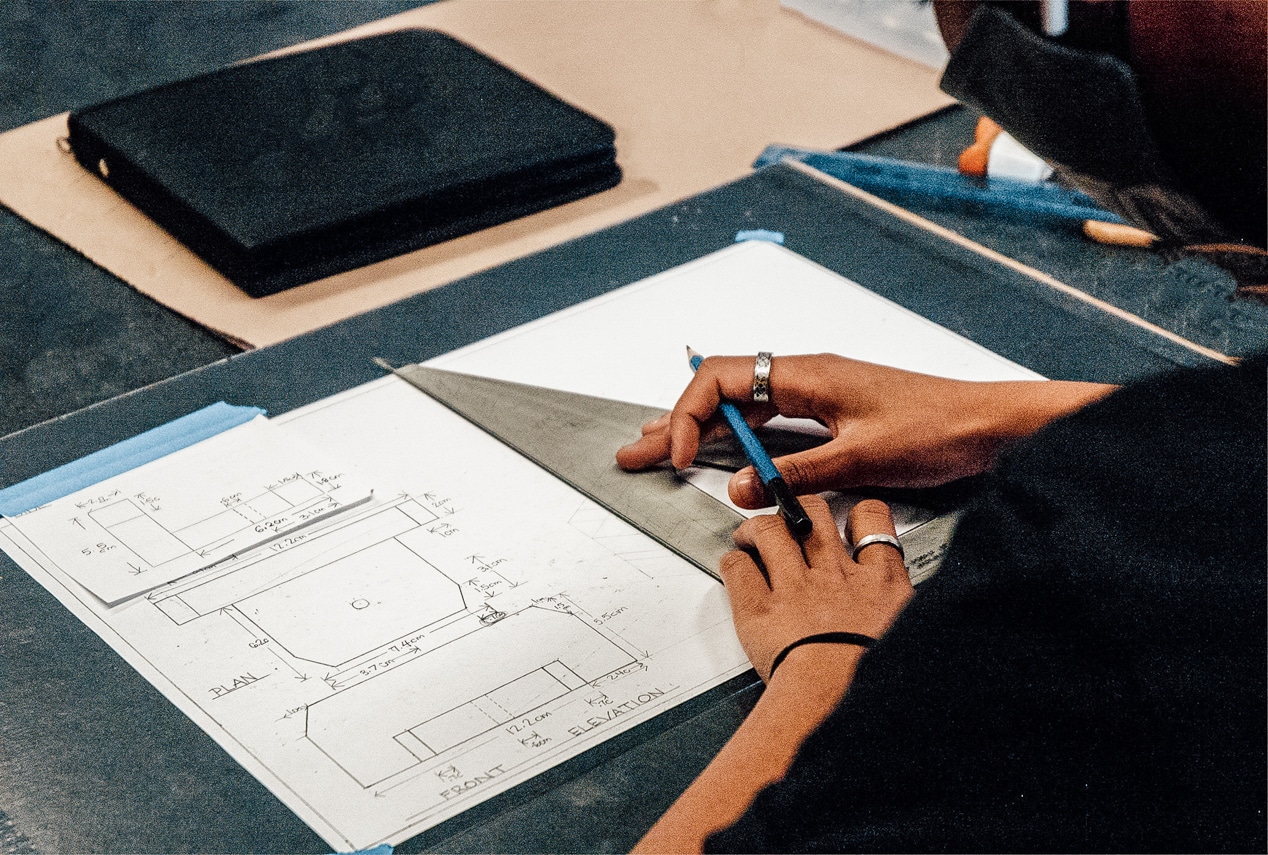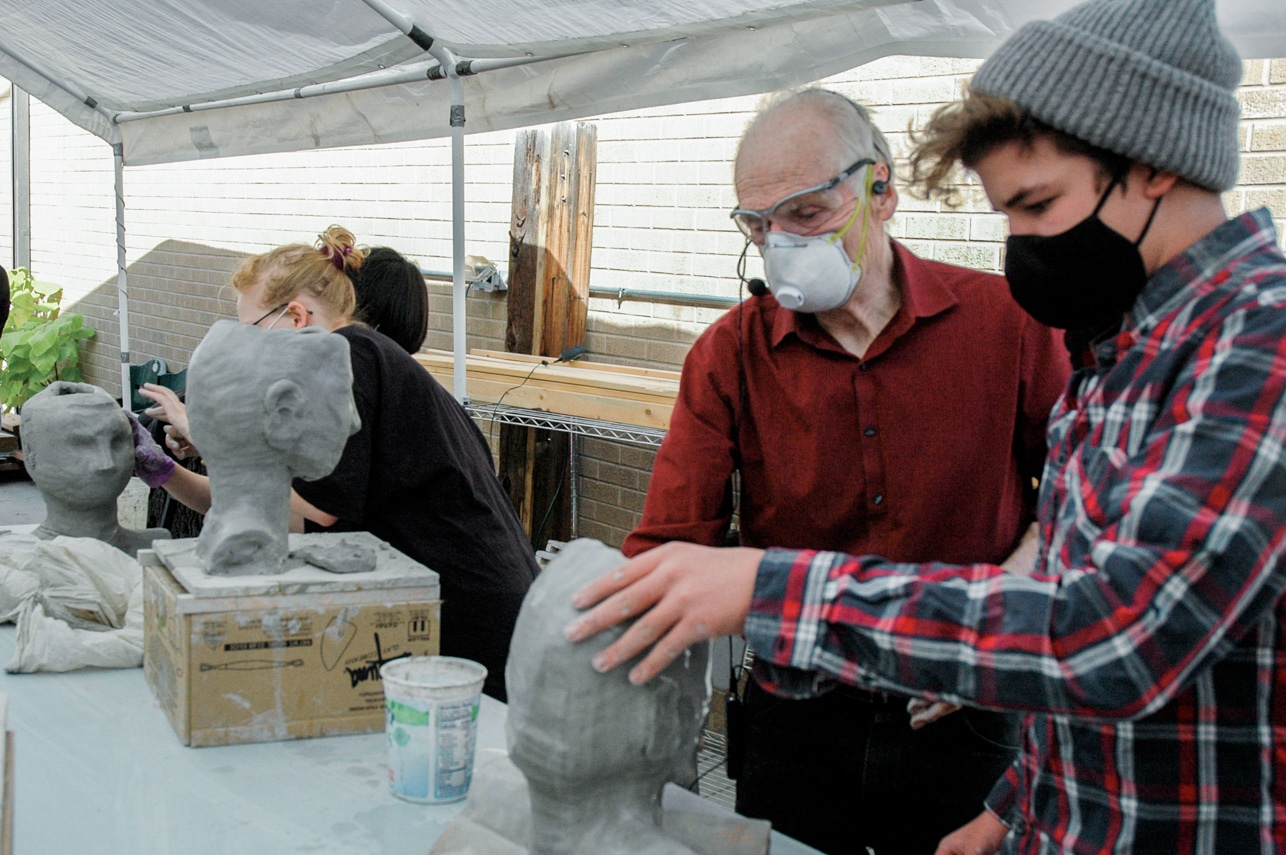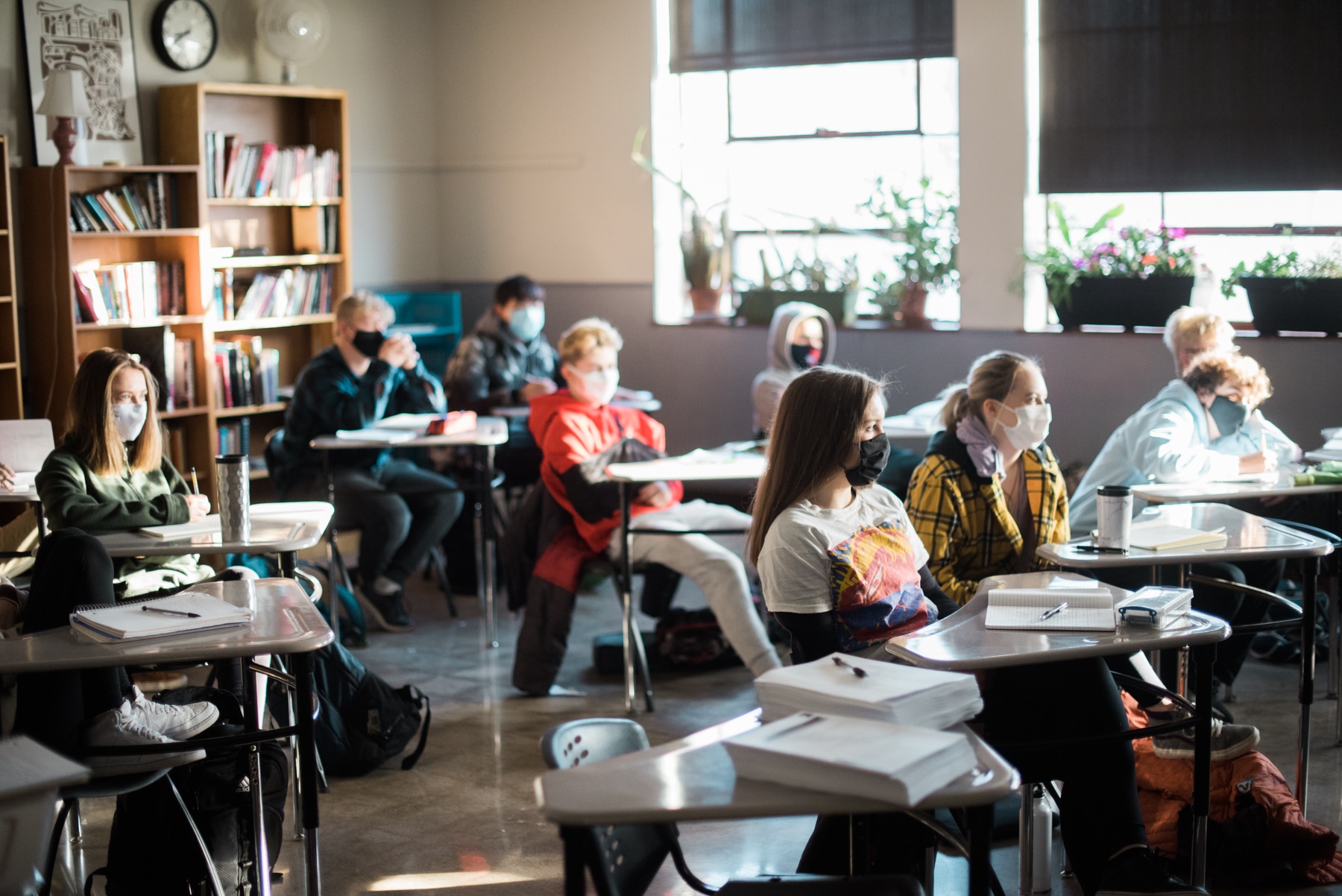Waldorf Alumni
As we look forward to welcoming back some DWS alumni for our panel happening on Wednesday,
February 15 at 9:00am, we asked DWS Next Steps Coach Laura Shope to share more about Waldorf alumni.
Read her insights below and be sure to join us on February 15th for coffee at 8:15am followed by the alumni panel!
*****
People often wonder about where Waldorf graduates go and what they do after graduation. Or perhaps,
the underlying question is, “Will my student have the best opportunities available to them if they attend
a Waldorf high school?” As an alumni parent, trained Waldorf teacher, and as the Next Steps coach at
The Denver Waldorf School, I can say absolutely, yes! And perhaps even more…
Waldorf alumni are often described as standing out in their future work experiences or in college. There
is an anecdote that I have heard validated time and time again about professors in colleges noticing a
distinct difference in our students, asking where they went to high school, and upon hearing a Waldorf
high school, responding with an all-knowing, “Ah, yes, that makes sense.” On the Waldorf Education
website, this idea is validated:
“Professors in various academic disciplines and in a wide range of colleges and universities who have
had Waldorf graduates as students…note that Waldorf graduates have the ability to integrate thinking,
to assimilate information as opposed to memorizing isolated facts, are willing to take intellectual risks,
and are leaders who take initiative.” (Waldorf Education, 2022)
Waldorf graduates are often described as visionaries and as having developed a sense of balance in life.
They are adaptable, have patience, and are collaborative in nature. Waldorf alumni are also reported to
have more ease with creating relationships with professors in college as they are accustomed to
discussion and having a close relationship with their teachers in high school. These qualities stand out as
something different and valuable as our alumni move into various roles in their lives after high school.
Sometimes there is also a myth that Waldorf schools are just "art" schools, or that perhaps the education is
not as serious as other options. Our high school curriculum is an integrated liberal arts curriculum that
includes the arts, but even more so emphasizes the sciences, mathematics, history and English. What’s
unique is that all the students participate in the whole curriculum, and, therefore, are exposed to many
subjects deeply.
In my experience at two Waldorf high schools, about half of our graduates go on to
study humanities and social science, including a few who dedicate themselves directly to the arts. The
other half go into science and math fields. According the data gathered from over 1000 Waldorf
graduates in North America, about 45% of Waldorf alumni pursue arts/humanities/social science,
another 45% pursue STEM majors with the remaining choosing business, health or education.*
As part of our Next Steps program at DWS, students are guided to identify their interests and the
possible pathways forward with the intent that they feel confident about their choices even if it’s not all
clear yet. Our students start researching careers in ninth grade and the pathways required for different
options in tenth. During eleventh grade, students start a more individualized process around their own
skills and interests, develop skills related to applying to jobs, programs and colleges, and have a
wonderful opportunity to "try on" an experience during a two-week "internship" at the end of the year.
Senior year is all about the implementation of their individual plans.
At DWS, almost all our graduates head off to college. Of those who choose a different path other than college,
recently some have chosen training for a specific trade or getting work experience before choosing
a path. Some of our students choose to attend community college first, and then transfer to a four-year
college or earn an associate’s degree. And more recently, an increasing number of students are choosing
to take a gap year before going on to college to travel, volunteer, earn money, or deepen their learning
about an area of interest. Nationwide, this trend is growing and about 25% of Waldorf graduates report
taking a gap year before attending college.* Our college-bound graduates are pleased with the options
they have to choose from, receive large merit-aid awards, and are well-prepared for success in their new
learning institutions.
Time and time again, Waldorf alumni, whether through research, alumni panels, social media posts, or
in direct conversations, cite their Waldorf education as uniquely preparing them for their futures, and often,
especially crediting their participation in the arts or the integrated curriculum as being an
important factor. (Safit, et. all, 2020)
Our students are not just prepared for college — they are prepared to make meaningful and deep contributions
to the world, well beyond their first job. Their Waldorf education is the first step in this journey. In a world that
will change many times over after they graduate, our students build a solid foundation to meet the challenges
and opportunities for all of their days ahead.
References and Additional Resources
*Into the World: How Waldorf Graduates Fare after High School
Safit, I., Gerwin, D., Stokes, C., & Starzynski, A. (2020). Into the World: How Waldorf Graduates Fare after
High School. Waldorf Publications.
Lamboy, J. (Host). (2021, October 26). A conversation with alumni [Audio podcast episode]. In The
Denver Waldorf School Podcast. Spotify.
https://open.spotify.com/episode/3z2RFEypDisJVKeT334NOG
Understanding the New Test-Optional Admissions Environment
Do you remember studying for and taking your SAT or ACT tests? Or maybe you even took both?? Do
you believe this is your student’s ‘ticket’ to college? The college admissions landscape has completely
shifted over the past three years, and decisions about test requirements will continue to evolve over the
next few years as well.
Even prior to the pandemic, many colleges and universities were downplaying the role of test scores in
their admissions process. Selective and highly selective colleges and universities were using the test
score more as ‘validation’ for a student’s transcript – did it confirm the message coming through the
transcript? Many admissions counselors reported that if the transcript was good, the test score only
verified that, but that a lower test score didn’t necessarily reduce a student’s chance of being admitted.
As a result of access issues during the pandemic (test site closures, school closures, etc.), the vast
majority of colleges and universities declared admissions would be 'test-optional' as a way to de-stress
the students who were preparing applications. If a student had access to testing, and felt their score
represented them well, they could include it as part of their application. If they did not include a test
score, their application was reviewed without it, and not penalized in any way. Some colleges and
universities took this opportunity to change policies for good. Others have taken a year-by-year
approach. And some have committed to it for at least five years, so they can assess the data as these students
move through their programs, before making a final decision. A small handful of colleges were already
test-optional, or test-blind (meaning they won’t look at test scores even if they are submitted).
As such, our students now have MANY more, and wonderful, options for higher education to choose
from which do not require test scores as part of the application process. This currently includes all public
universities in the state of Colorado after a bill was passed in 2021 to remove the requirement. So,
should they prepare for and take a test at all?
While the admissions process has shifted in this direction, there are still many scholarship opportunities
that DO require a test score. Also, there are a few states (Florida, for example), and specific colleges and
universities that still require a test score for admission (like MIT, for example).
In the US, every college and university that accepts test scores accepts either the SAT or the ACT. There
is no longer a need for students to prepare for both - they are different enough from each other that
preparation for one does not equal preparation for both. Additionally, the SAT has announced that
starting in March 2024, the SAT will only be offered in a digital format. It is said to be simpler, take less
time and adapt to the student taking the test, resulting in a score that is comparable to the current
version. This means that our current ninth and tenth grade students who take the SAT their junior year
will take the digital version. And next year’s PSAT will also be digital.
Usually, our recommendation at DWS is that students try both a practice SAT and ACT to see if one feels
more ‘natural’ to them. And then, choose either ACT or SAT, and prepare for that test. International
students usually need the SAT, and some majors, like engineering, prefer the SAT. Otherwise, students
really do have a choice. And now that choice includes whether to take a test at all.
As a family, it is important to weigh the investment of time and energy (and perhaps money) in
preparation with the potential outcome. For many more students than ever before, this results in a
decision not to take either test (especially for those students who are negatively impacted in a test
environment). Some students choose to take one to see how they do, and keep options open, but may
choose to not submit scores to individual colleges. Others who do well on this type of exam do take it,
and in some situations, it opens additional doors for them.
If your student opts to take either the ACT or SAT, we recommend they prepare during their junior year,
and take their first attempt in the spring of junior year. If they are happy with their score, they can be
done at that time. Most of our students who opt to take SAT or ACT will continue to prepare after the
first sitting and take it again during the summer or early fall. Experience has shown that scores do not
improve much after the third attempt. Most students are motivated by their first score to prepare
differently and improve their score the second sitting. Remember that these tests are designed to be
taken at the end of their junior year.
If you have questions, or would like to discuss your student’s individual situation, please reach out to
Laura Shope, our Next Steps Counselor, who can help you understand the considerations as you make
your final decision. The bottom line is that the role of standardized tests in college admissions is shifting,
and now students have more options than ever before.
2022 Senior Projects
A highlight of the senior year at a Waldorf School, the Senior Project culminates in an oral presentation before classmates, faculty, friends, and family. The 2022 lineup included:
Wednesday, April 6th
Stazi Salazar — The Way of a Doula
Dylan Quinn — Music Production
Liv Kuijper — The Lifeline Fund
Phoenix Ywanciow — Sola: A Project in World Building
James Stuart — Song Writing & Music Production
Elan Volk — Becoming an Online Entrepreneur
Daisy Macomber — Selfhood
Olivia Limburg — Constructing and Renting a Pull-Behind Trailer
Thursday, April 7th
Eliza Blanning — Documentary on Body Image & Social Media
Jonah Carr — Hello World
Guthrie Turner — Becoming an EMT
Lucas Lewis — Scrap Metal Welding
Naomi Noone — Songwriting Journey
Jasper Pastor — The Art of Tattooing
Asher DeMoney — Photography
Will McHenry — Model G

What are Senior Projects?
The senior year at a Waldorf school is designed to be a synthesis of the students’ education and a preparation for their next step in life. As twelfth graders stand on the edge of adulthood, they long for independence and yet are still unsure of their place in the world. The Senior Project is designed to help students begin to bridge this gap, preparing them for college studies and professional work in the world. Students must design a project that forces them to pursue a new area of interest or something that will stretch their abilities, mentally, physically and/or emotionally.
The individual projects are approved by the High School faculty and supported by an adult mentor who is an expert in the chosen field of endeavor and preferably someone outside of the familiar school community. The project scope is equivalent to one main lesson block, or about eighty hours of work, and typically extends over many months of the school year. The project culminates in a formal presentation of learning to the community.
The Shepherd's Play
A Denver Waldorf School Tradition
Recommended to Waldorf schools by Rudolf Steiner, The Shepherds’ Play, is one of a trilogy of plays from the middle ages and has been an annual event at The Denver Waldorf School for more than three decades. The story reflects and contrasts the simplicity of the shepherds, the practical and earthly interests of the innkeepers, and the divine birth event of the Christ Being, amid a fervent reverence for nature.
In today’s eclectic world, some may identify in this play an intimacy with the heavens at the winter solstice, or even a profound personal spiritual birth or renewal, as the returning light of the sun gives promise and hope for the future of humankind.
The Music of the Shepherd’s Play
The music for the Shepherd’s Play was written by Leopold van der Pals (1884-1966), a Danish/Dutch modernist composer who became acquainted with Rudolf Steiner and moved to the Dornach area in 1915. In this production, Lily Kellogg and others arranged the songs for two- and tree-part voice.
2021 Performance
Our Shepherd’s Play returned to the stage before a live audience in 2021. Participants included The Denver Waldorf High School’s 12th graders and faculty, with musical accompaniment by Mariko Murase.

2020 Performance
This year’s audio play participants include The Denver Waldorf High School’s 12th graders, two alumni, current and former teachers, and musical accompanists. As an acknowledgement of the times we live in, all singing and speaking tracks were recorded in small groups of four to five, wearing specially prepared masks for that purpose, and minimal rehearsals to follow safety guidelines.

Step Inside The Denver Waldorf High School
Step Inside The Denver Waldorf High School
Our high school was founded more than 26 years ago, and our robust and dynamic curriculum has been taught throughout the world for more than 100 years. But today, students find that it’s our hands-on approach to education paired with a diverse and inclusive environment that best prepares them for the world beyond our doors. In fact, when students graduate from DWS, they possess the motivation and the confidence to do the work the world so desperately needs.
Watch the instagram reel below to get a feel for what our high school students value about their Waldorf high school education.
Hear from High School Faculty
All high school classes are honors-level courses that integrate high academics, arts, and movement to educate the whole student. Our seminars are organized into nine four-week blocks. During each block, the curriculum focuses on a single subject (such as chemistry, calculus, or history). These focused blocks allow our students the time to immerse themselves in a subject. In this way, we’re able to hone our students’ true abilities by exposing them to rigorous academics while exciting their critical thinking and developing their academic confidence.
Click the images to watch the videos below and get a sense of how various parts of our curriculum contribute to the larger tapestry of our high school experience.
Hear from DWS Alumni
How does a Waldorf school prepare today’s students for college? Of course, 100% of Denver Waldorf students are accepted into college, the vast majority finishing in four years. And our graduating classes, although intentionally small, average more than $4 million in scholarships per year. The investment feels worth it. But what are the experiences of our recent alumni once they go beyond our doors? During this podcast, we sit down with two recent graduates, Ellery Lewark and Vander Georgeff, and they candidly reflect and share about their experience.
About The Denver Waldorf High School
The Denver Waldorf High School offers a liberal arts education, consciously aimed to nurture and encourage adolescent ideals. The high school experience aims to balance the students’ academic needs with their longing to find meaning in the world.
Engaging Body, Intellect, and Emotion
At the start of each day, movement helps spark students’ circulation and bring them together. They then engage in a long, uninterrupted seminar (referred to as main lesson in elementary and middle school) to activate their minds, followed by music and elective classes to spark emotional expression. Music classes and elective courses promote the development of healthy emotional expression through creation.
High School Music
Regarding music, all high school students participate in chorus, with the option to participate in either music ensemble or orchestra until their senior year. Students new to DWS and who have not played their instrument before are strongly encouraged to take private lessons.
Hands-On Learning of Real-World Skills
Students apply what they’ve learned theoretically to scenarios in the real world. For example, a study of soil composition could be applied to a chemistry lesson on acids and bases, as well as a close reading of The Grapes of Wrath, and a course in black-and-white photography in which they learn to develop their own film.
Rhythm of Thinking, Feeling, and Willing
Our goal is to expose our high school students to academic wealth, and demonstrate to them that all knowledge is valuable to encourage their pursuit of wisdom throughout life.
The high school curriculum revisits themes and subjects periodically to strengthen functional knowledge. Students cultivate their ability to think critically, organize ideas and information, and clearly present thoughts through an academically challenging mix of math, English, humanities, physics, life sciences, chemistry, world language, practical, industrial and fine arts, chorus, orchestra, drama, and physical education.
About The Denver Waldorf School
The Denver Waldorf School is an urban pre-K through 12 independent school in Colorado. Founded in 1974 on Rudolf Steiner’s humanitarian curriculum, DWS believes education should foster what it is to be human, cultivate lifelong curiosity, and inspire a love for the world. We are currently enrolling for in-person learning:
Want to learn more about us? Schedule an in-person tour of our Denver campus or join us online during our virtual events.
High School Roundtable: College After Covid
In February, we kicked off our High School Roundtable with DWHS faculty and staff and independent Education Counselor Carolyn Francis to discuss the post-Covid college application process, taking a gap year, and more. Watch both recordings of College After Covid below.
To see what’s coming up next in our lineup, check our Events page.
College-Prep Checklist
Common questions that surface for high school students and parents include everything from when to take the ACT or SAT and how to search for schools. Download our 10-step checklist to help stay on track.
Recordings for the February Sessions of the DWS High School Roundtable
Part 1 — February 5, 2021

Part 2 — February 5, 2021

About the High School Roundtable
The High School Roundtable is a monthly webinar series serving DWS families. The aim is to bring guidance on navigating high school to the table.
Enrollment & In-Person Tours
The Denver Waldorf School is a Denver-based independent school that is currently enrolling preschool through high school students. Schedule an in-person to learn more on our curriculum, admissions process, financial aid, and more.
High School Happenings at The Denver Waldorf School
High School Panels
If you missed either of our live Q&As with The Denver Waldorf High School students and faculty, don’t fret. We recorded the session so you can catch a glimpse of our program and hear from those who make our high school one of the most incredible places in Denver.
Get to know The Denver Waldorf High School
High School Academics Q&A on January 12, 2021
With High School Director Brie Kaiser, Math Teacher Sarah Meyer, Science Teacher Wayne Mayer, Humanities Teacher Eric Mills, and some of our DWS high school students.

High School Arts and Theater Q&A on December 3, 2020
With High School Director Brie Kaiser, Art Teacher Kimberly Martin, Theater Teacher Leo Bond, and some of our DWS high school students.

High School Athletics and Arts Q&A on October 20, 2020
With Admissions Manager Brooke Camfield, High School Director Brie Kaiser, School Director Kelly Church, Athletic Director Michael Quinn, Art Teacher Kimberly Martin, Student Support Coordinator Sarah Boyer, and some of our DWS high school students.

Step Inside The Denver Waldorf High School
The Denver Waldorf High School offers a liberal arts education, consciously aimed to nurture and encourage adolescent ideals. The high school experience aims to balance the students’ academic needs with their longing to find meaning in the world. We are currently enrolling high school students and offering monthly group tours and experiential mornings.
Group Tours
Our monthly group tours Group Tours take place on the following dates at 9am.
Experience Waldorf
During our Experience Waldorf mornings, you’ll observe.
- November 11 from 11am to 12:30pm
- Story of Drama
- Civics & Constitution
- Embryology
- Data Science
- December 7 from 11am to 12:30pm
- Thermodynamics
- Environmental Science
- Parzival
- Transcendentalism

